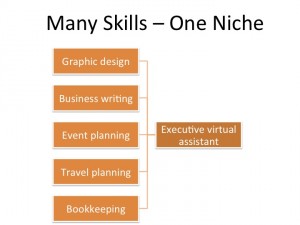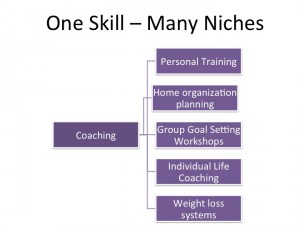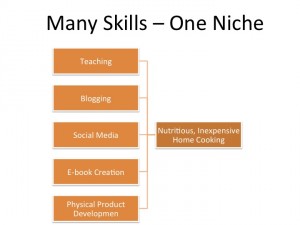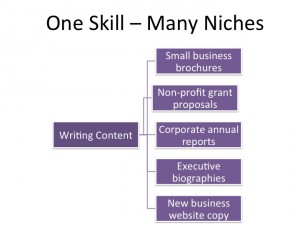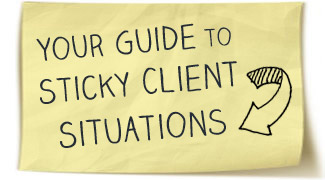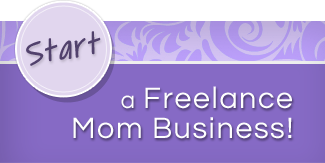
A lot of the prevailing advice to the soon-to-be self-employed is to pick a niche and brand yourself heavily in that area. Proponents say,
“Who’s going to hire a new wellness coach with no experience besides her certificate program? You have to do something and be known for something so incredibly specific that when people really need exactly that skill, they come to you.”
But what new freelancers respond with, very validly, is:
“Okay, but who is going to hire me for that right now? I need enough clients to earn an income now, not just later when I become famous for my super specific niche.”
It’s a real conundrum, and from the emails I receive from you readers, it is frustrating many of you.
The Advantages of Niching
First of all, let’s make one thing clear: your field is not the same thing as a niche.
Say you’re a writer or a graphic designer or a wellness coach. That’s your job, your title. But are you a technical white paper writer, start-up logo designer, or executive life balance coach? Those are niches, and narrow ones at that.
Choosing a very narrow focus within your field can carry some big advantages:
- Saving yourself from duplicating work.
If you’re only coaching executives, you don’t need to read studies on psychological techniques to promote weight loss. Or if you’re only writing sales copy, you only need to study persuasive writing techniques, not narrative styling.
- Creating highly transferable samples.
When prospective clients want to see samples or case studies of your work, all of your work will naturally apply to them directly if all of your clients are very similar. By demonstrating exactly what you can do for someone with the same problems as your prospect, you’re more likely to make the sale.
- Positioning yourself as an expert.
The more narrow your focus, the less competition you have in that area of expertise. It is then just a small step to become the go-to public speaker on your topic and write an e-book solidifying your position as the authority in your niche.
The Disadvantages of Niching
However, for self-employed woman, especially newly self-employed women, being employed by someone on something is a very important part of the career, both to make money and build your portfolio.
It’s true that an overly narrow niche can leave you wondering where to find clients along with some other disadvantages:
- Missing out on interesting opportunities.
Even if you love your narrow niche, there are other things you enjoy, both in work and in life. If you are too specialized, you might not be considered or be passed over when you apply for an opportunity that is actually perfect for your interests and skill set simply because your experience so strongly positions you for another type of work.
- Lack of income potential.
The smaller the niche, the less dough in the pie. If you choose too small of a niche, there may not be enough potential buyers to support you. One of the reason major, broad niches employ a lot of people is that they are very large pies. Even if you can’t become known in that area as easily, you’ll have an easier time earning as a newcomer.
- Boredom over time.
It’s sad but true. Even if you didn’t go into self-employment to keep from doing the same thing every day (though changing diapers is unfortunately very similar most of the time), having the freedom to plan your own days creates a restlessness that can make it hard to work with the exact same kinds of clients on the exact same types of projects and problems every day.
So, What’s the Answer? Niche or Not?
Here at FreelanceMom, we think a hybrid approach is best. Confusing, I know, but let me explain.
There are skill sets and specialties. You can be narrow in one and broad in the other.
Let’s look at bloggers. It’s true that bloggers need to have a very well defined topic if they are going to succeed. However, to become a successful blogger in today’s climate, “write it and they will come” doesn’t cut it any more.
You have to know how to network, both on social media (a completely different form of writing) and in person at industry conferences. You have to know how to take or identify and edit fantastic photos. And you have to have a firm grasp on constantly changing software and web standards.
That’s a wide skill set.
And if you actually want to make money from your blog, you need to know how to write sales copy, split test different types of marketing, and create information products, whether in the forms of e-books (yet another type of writing) or e-courses (a very different skill set).
Real World Applications
Jules Clancy, creator of the Stone Soup food and cooking blog, is a prime example of this. On the surface, it looks like she finally became successful when she niched her topic way, way down. Instead of just talking about cooking quickly or cooking healthy food, like thousands of other bloggers, literally (there are over 15,000 food blogs), she turned her attention to 5 ingredient 10 minute recipes and cooking techniques to support them.
Within a few months, her readership increased exponentially, along with engagement on her blog and email sign-ups. She launched a series of e-books, polled her now-engaged readership to see what they wanted, and went on to launch and online cooking school, one of the few (if not the only one) operated by a single self-employed woman as opposed to a brick and mortar cooking school or food publishing company.
Her topic became very, very small while the skills required from her grew.
But you can also cover a broad range of topics with a narrow skill set. As a coach, you may simultaneously specialize in coaching clients to quit smoking, build start-up businesses, and lose weight. All areas take a similar coaching skill set on your part, but you apply those techniques to different topics.
As a writer, you may position yourself on your website and online profiles as a journalist on environmental issues but work with selected clients on editing book manuscripts and ghostwriting non-fiction novels. Same skillset – reporting, writing concisely, editing ruthlessly – wide applications.
The real question self-employed woman should answer when they wonder whether they should choose a niche and what should it be is not the type of clients or work they want but what they bring to the table.
What makes you different than your competition?
Answer that and you’ll know how to position yourself.
If you take a look at Jules’ about page, you’ll see that as far as her business is concerned, it’s all about the client. That’s the main thing successful business have in common.
Have you chosen a narrow niche for your services? Or rejected one? How did it work out?
Image courtesy of bplanet at FreeDigitalPhotos.net
